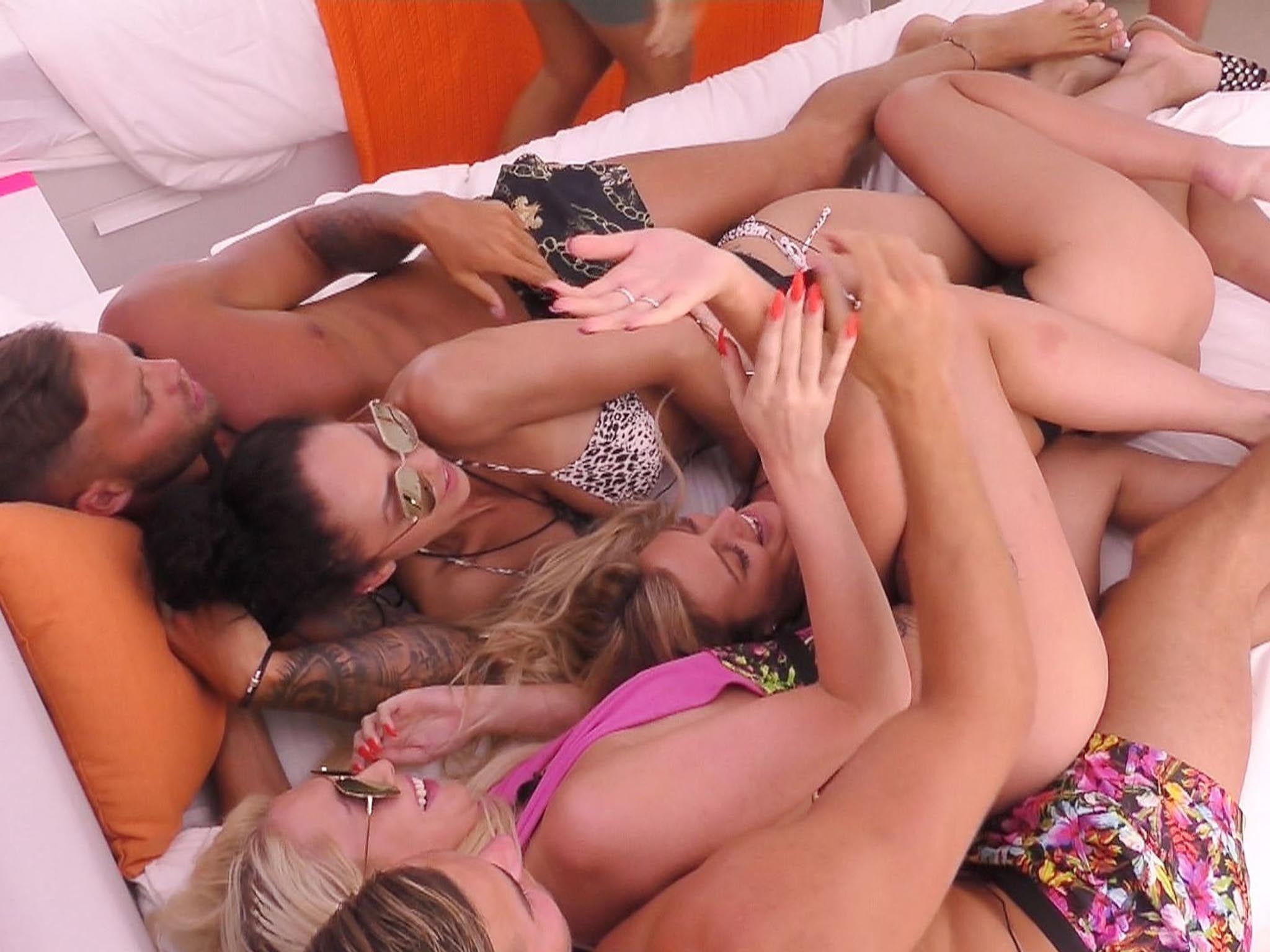LGBT representation on television is tokenistic and de-sexualised
ITV boss Kevin Lygo thinks there are 'enough gay people on television'. This betrayed an overly simplistic attitude towards representation, and ignores the fact that gay sex is rarely depicted in mainstream entertainment at all

On Thursday, the director of television for ITV Kevin Lygo caused something of a stir at the Edinburgh Festival. There had been some discussion about expanding the incredibly successful ITV programme Love Island to more proactively include LGBT contestants, but Lygo shot down this idea claiming that the format didn’t allow for LGBT contestants. He later expanded on this idea, with the claim that “there are quite enough gay people on television”.
Rather than being met with shock and disgust, this statement has in some quarters been met with flaccid contemplative chin-stroking. You may of course have some sympathy with what Lygo has said – many do. If so, I would like you to think for a moment what the reaction would have been had Lygo instead suggested that there were enough black people on TV. He would (rightly) have been decried from all quarters as a racist, condemned from both sides of the political aisle, and in all likelihood be updating his LinkedIn.
In this case though, the outrage (outside the LGBT community) has been pretty much non-existent, and so it is important that I outline for all my non-LGBT readers in particular why outrage is not only an appropriate response, but that it is the only defensible response to what he has said.
More than anything, Lygo has neatly exposed a culture of tokenism when it comes to LGBT representation on television. Television isn’t inherently “straight” or “queer” – television is about people, and people come in all forms. The notion that somehow we have reached “peak queer” in the world of television is as misguided as it is dangerous. LGBT people shouldn’t be on television because they’re gay, they should be on television because they are people.
I don’t want to focus too much on what Lygo has said about Love Island specifically, but I do think it’s important to see it in a broad context – the claim that LGBT contestants simply wouldn’t fit the format is overly simplistic. Last year there was the unplanned but very real romance between Sophie and Katie, ostensibly on the hunt for men, but who instead found each other – so “B” contestants have already been on the show. The acceptance of this storyline is perhaps representative of a cliched fetishisation of a sort of “girl on girl” exhibitionism, but what if the two non-straight contestants were gay men?
Love Island fans will be familiar with the “bromance” that arose between two men, Chris and Kem, this year. There was even the suggestion that they would win if coupled up – as my friend Daisy neatly put it, they were “very tender” with each other. I’m all for bromance, but this highlights for me one of the last hurdles we have to jump in terms of representation on television – that of gay sex.
Ever since Charlie Hunnam got toe-curlingly lip-bitingly rimmed by a drugged-up Aidan Gillen in Queer as Folk, “LGBT” programming has enjoyed a more open attitude to portraying gay sex on screen – there was some pretty steamy stuff in some of the BBC’s Gay Britannia season earlier this year for instance. Importantly though, this remains almost exclusively the preserve of “LGBT” programming.
Desexualising gay people is at least as bad as over-sexualising them. Trailblazers like Brendan Maclean with his excellent music video for “House of Air” (which features pretty much every gay sex act imaginable) push the bounds of what is deemed “acceptable” in mainstream forums, and the fact that it has been nominated for Raindance this year is a positive indicator that perhaps we are beginning to break out into this mainstream a little more.
However, when it comes to people’s living rooms, we have a long way to go. Bromances are fine, but they’re not representative of gay sexual relationships. If a gay man like me can happily watch straight sex scenes, why can’t gay sex exist in that same universe of programming? As long as it remains ghettoised within the “safe” LGBT genre, then we absolutely have a problem, regardless of how many gay people might exist on TV.
Join our commenting forum
Join thought-provoking conversations, follow other Independent readers and see their replies
Comments